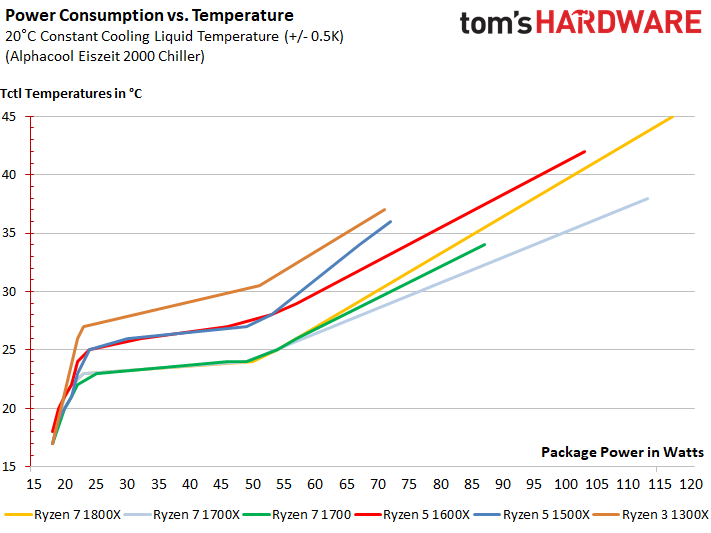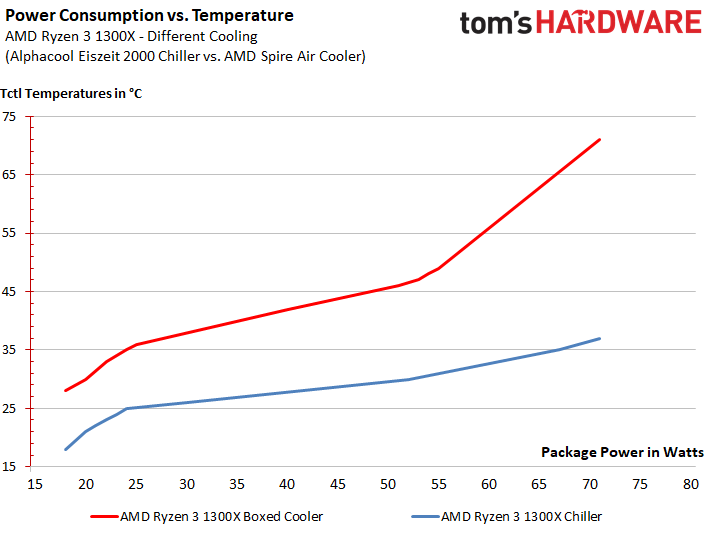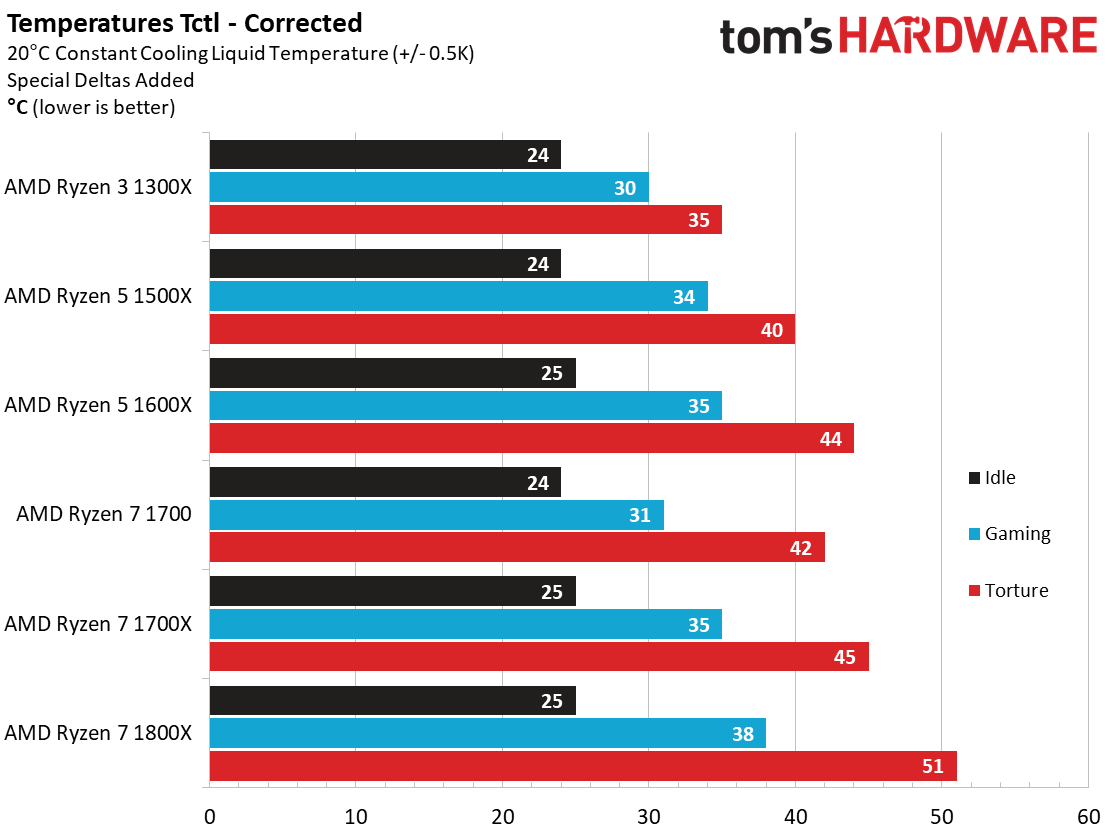AMD Ryzen 3 1300X Review
Why you can trust Tom's Hardware
Temperature & Noise (Stock Cooler)
Tctl Sensor Readings Leave Many Open Questions
One of the lessons learned during the Ryzen 7 launch was that AMD's temperature sensor output has its share of problems. The company configured some of the models to report an additional 20°C on top of the actual temperature in order to guarantee adequate cooling. We’re still puzzled by this choice. Read more about this in our Ryzen 5 1600X coverage.
We’re primarily using Alphacool's Eiszeit 2000 Chiller with its 1/4” threads and powerful pump yet again. We’re also employing the stock cooler to determine the remaining temperature differences in a more real-world setting.
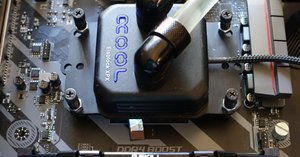
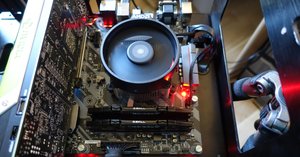
Temperature vs. Power Consumption
Our cooling solution operates completely independently from the waste heat put into it during all of the tests. Once again, this allows us to plot the Tctl values against actual power consumption.
In order to compensate for various jumps and delays, we use a tool that we programmed ourselves to generate different loads over time and distribute them as evenly as possible among the different threads. The results of our efforts confirm what we’d suspected:
Below 20 to 25W, the temperatures are complete nonsense. However, there are large differences between AMD’s Ryzen 3, Ryzen 5, and Ryzen 7 when it comes to interpreting their Tctl sensor readings. We were somewhat surprised to see that there doesn’t seem to be an offset for the Ryzen 3 1300X. Then again, this could also be due to the motherboard’s new BIOS, though.
It’s our suspicion that the Tctl values are calculated by the CPU internally, and that its division gets less accurate with decreasing core count. All of the values look much too high to us. Consequently, we'll use a corrected difference that's based on our comparison curves.
Implications For Air Cooling
The Ryzen 3’s stock cooler gives us a more practical look at operating temperatures, and we manually set it to the speed it reached during our first stress test. Two sharp bends are still apparent in the line graph, even though the overall curve has a much steeper slope. We weren’t able to detect any meaningful leakage currents.
Get Tom's Hardware's best news and in-depth reviews, straight to your inbox.
Corrected Temperature Results With Water Cooling
We now take the predicted differences, or deltas, for the three disciplines we test into account.
Stock Cooler Noise Level
The Ryzen 3 processor fits squarely into the 70W category. Even a simple aluminum block doesn’t have a hard time dealing with this level of waste heat. Depending on your motherboard and fan profile, the cooler should only generate between 33 to 36 dB(A). This is a solid result; it's not loud at all.
MORE: Best CPUs
MORE: Intel & AMD Processor Hierarchy
MORE: All CPUs Content
Current page: Temperature & Noise (Stock Cooler)
Prev Page Rise of the Tomb Raider & The Witcher 3: Wild Hunt Next Page Power Consumption
Paul Alcorn is the Editor-in-Chief for Tom's Hardware US. He also writes news and reviews on CPUs, storage, and enterprise hardware.
-
yankeeDDL Wow.Reply
I don't remember when it was last time when we saw a review where, practically, in every chart AMD was at the top, and Intel at the bottom. It is refreshing really. Hopefully this will drive Intel to cleanup the mess it created in 5+ years of unchallenged leadership, and get its acts in order.
I'm enjoying the moment though. With my Ryzen 5 1600 :) -
blackmagnum This is the product segment my slim wallet has been waiting for. I just hope that Intel will fight back with a price war. Now bring in the Ryzen+IGP for office gaming!Reply -
SS_1__ The only mainstream chips Intel makes worth buying are the G4560 and 7700k, AMD has the rest of the product stack.Reply -
mjslakeridge The thing I found interesting from the review is that the disabled cores still receive power (second to last page of the review). Now we just need to figure out how to enable the "hidden" cores!Reply -
bloodroses While I wasn't impressed with the Ryzen 5, their 7 and 3 are really putting the hurt on Intel. Good job AMD for getting back into the race. :) Let's hope they can do the same against Nvidia so true competition will finally be back.Reply -
InvalidError Reply
There isn't a whole lot that Intel can do about it other than drop prices for a given amount of cores and threads, though you can expect Intel to hold on to premium pricing for its IPC, clock frequency and lower power advantages.19988753 said:Hopefully this will drive Intel to cleanup the mess it created in 5+ years of unchallenged leadership, and get its acts in order.
What I'm really curious to see for the mainstream/office segment is the Ryzen-Vega APUs. -
madmatt30 Amd are just absolutely smashing it this year.Reply
Which is a great great thing after Intel's dominance & stranglehold for the last 6 years.
Intel price war ??
No that's not going to happen if it hasn't already ,they're way too arrogant to ever do that.
-
redgarl One of the best CPU of the year with the 1600x. I still take my 1700x over them, but if you are under budget, there is no questions.Reply
Too bad their Vega card seems like another Fury. I sold my stock and wait for the first benches before rebuying it. Also, indication is that RX will cost 600-650$ and barely beating a 1080 GTX. However Vega core are going to be incridilbe with AMD APU on the laptop segment. Nvidia MXM cards are going to be a bad investment and cost a fortune while everything will be on the same chip for AMD. -
dudmont If AMD wants to grab business/oem market, they should come out with a very low end graphics card, something that costs 40$(preferably 20$) or less, that they could bundle with these Ryzen 3s and sell as a one stop solution. So long as it performed similarly to intels IGPs, and the price was competitive, their performance advantage would give them a shot at stealing sales. For them to really get market share, which is where these Ryzen 3s sit, they need to be able to offer something to more than just gamers on a budget.Reply
